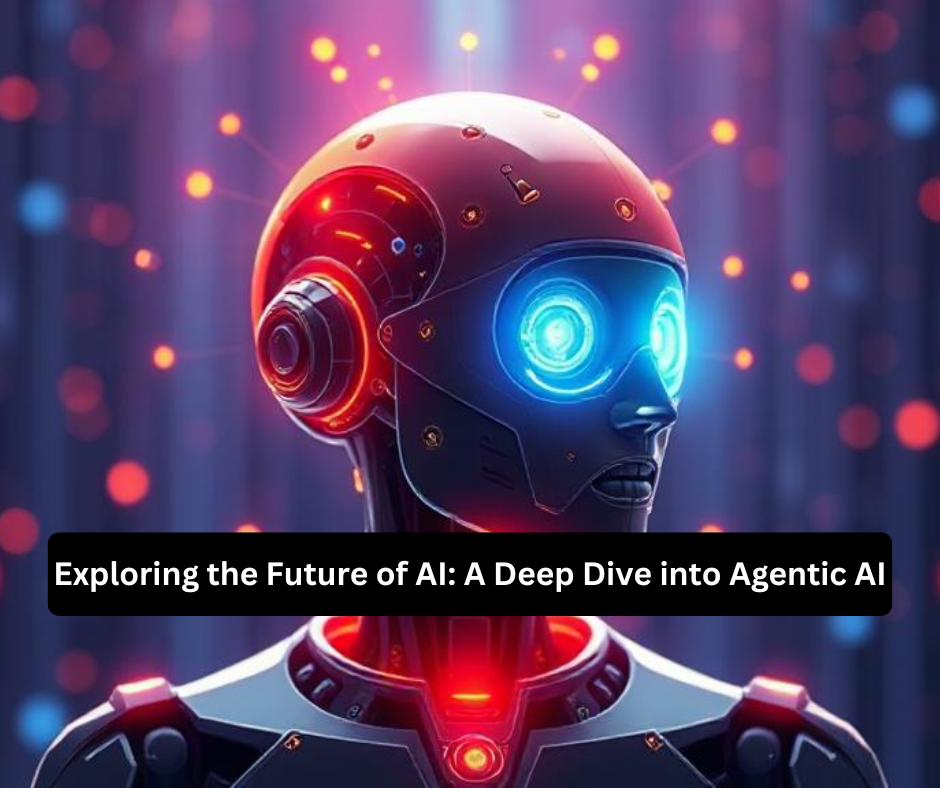Exploring the Future of AI: A Deep Dive into Agentic AI

Introduction to Agentic AI
Agentic AI represents the next evolutionary step in artificial intelligence, moving beyond mere perception and generation to autonomous task execution. Unlike traditional AI models that require human intervention for complex tasks, agentic AI can handle end-to-end processes independently. This shift signifies a monumental leap in AI capabilities, promising to streamline workflows and augment human productivity.
Understanding Ralet: A Revolutionary AI Platform
Ralet is at the forefront of this AI revolution, offering a platform that democratizes software development. With Ralet, users can create sophisticated applications without extensive coding knowledge. The platform leverages agentic AI to automate various aspects of the development process, from initial planning to deployment.
Key Features of Ralet
- End-to-End Automation: Ralet’s agentic AI can handle the entire application development lifecycle, from conceptualization to deployment.
- User-Friendly Interface: The platform offers an intuitive interface that makes it accessible for both novice and experienced developers.
- Customization and Flexibility: Users can customize their applications to meet specific needs, ensuring that the final product aligns with their vision.
- Real-Time Feedback: Ralet provides real-time feedback and suggestions, helping users refine their applications efficiently.
Building End-to-End Applications with Ralet
Creating an application with Ralet is a seamless process. Here’s a step-by-step guide to building a to-do list app using Ralet’s agentic AI:
- Define the Application: Start by outlining the features and functionalities of your to-do list app. For instance, you might want it to send notifications for high-priority tasks.
- Generate Initial Prototype: Ralet’s AI can generate an initial prototype based on your requirements. This prototype serves as a foundation for further customization.
- Customize and Refine: Use Ralet’s customization tools to refine the prototype. Add features like priority levels, task categories, and notification settings.
- Test and Deploy: Once you’re satisfied with the application, Ralet can handle the testing and deployment processes. The platform ensures that your app is ready for real-world use.
Example: Creating a To-Do List App
Let’s walk through the process of creating a to-do list app using Ralet:
- Define Requirements: Specify that you want a to-do list app with features like task prioritization and notifications.
- Generate Prototype: Ralet’s AI generates a basic prototype with essential features.
- Customize Features: Add priority levels (low, medium, high) and set up notification preferences.
- Test and Deploy: Ralet tests the app for functionality and deploys it to your preferred environment.
The Impact of Agentic AI on Software Development
Agentic AI, as exemplified by Ralet, is poised to disrupt the software development industry. Here are some key impacts:
- Enhanced Productivity: By automating repetitive tasks, agentic AI frees up developers to focus on creative and strategic aspects of software development.
- Accessibility: Platforms like Ralet make software development accessible to a broader audience, including those without extensive coding skills.
- Efficiency: Agentic AI can handle complex tasks more efficiently than human developers, reducing development time and costs.
- Innovation: The ability to quickly prototype and iterate on ideas fosters innovation, enabling developers to explore new concepts and solutions.
Future Prospects and Considerations
As agentic AI continues to evolve, several considerations come to the fore:
- Job Market Impact: While agentic AI can automate many tasks, it also creates new opportunities for developers to focus on high-value activities.
- Ethical Considerations: Ensuring that AI-driven development is ethical and transparent will be crucial.
- Continuous Learning: Developers will need to stay updated with the latest AI advancements to leverage these tools effectively.
Conclusion
Agentic AI, with platforms like Ralet leading the charge, represents a significant leap forward in AI capabilities. By automating end-to-end application development, agentic AI promises to enhance productivity, accessibility, and innovation in the software development industry. As we look to the future, embracing these advancements will be key to staying competitive and driving progress.
FAQs
-
What is agentic AI?
- Agentic AI is a type of artificial intelligence that can handle end-to-end processes autonomously, moving beyond mere perception and generation.
-
How does Ralet differ from traditional AI platforms?
- Ralet leverages agentic AI to automate the entire application development lifecycle, from planning to deployment, making it accessible for both novice and experienced developers.
-
Can I customize applications built with Ralet?
- Yes, Ralet offers extensive customization options, allowing users to tailor their applications to meet specific needs.
-
Is Ralet suitable for non-developers?
- Yes, Ralet’s user-friendly interface and real-time feedback make it accessible for users with varying levels of coding expertise.
-
How does agentic AI impact software development?
- Agentic AI enhances productivity, accessibility, and efficiency in software development by automating repetitive tasks and enabling quick prototyping.